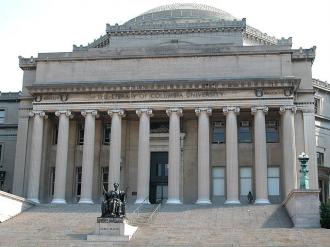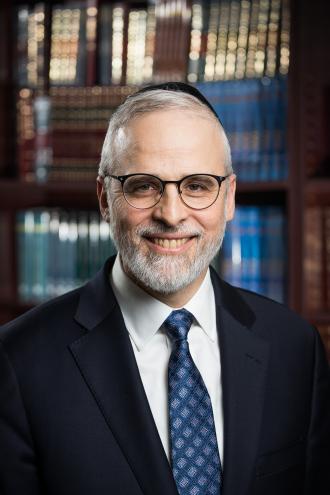Written in honor of Yosef Chaim ben Avi and Meira Mandel, who I had the privilege of serving as his Sandek this week. May his beloved parents reap much yiddeshe nachas from him and all his adorable siblings ad 120 !
The gamut of civil law that is enumerated in this week’s portion, that governs the many daily interactions in the commerce of everyday life, begins with the emphasis ‘that you shall place before them’, to indicate that these laws are unique to us and not to be compared with the body of civil law that may exist among the other nations.
The Midrash cites a verse we recite each day that accents this notion:
מגיד דבריו ליעקב חקיו ומשפטיו לישראל לא עשה כן לכל גוי ומשפטים בל ידעום...(תהלים קמז יט), He relates His word to Yaakov, His statutes and judgments to Yisrael, He did not do so for any other nation, such judgments they know them not...
The Midrash Tanchuma goes on to record a fascinating account of Aquila the Convert’s path to conversion:
Aquila was the son of Hadrian’s sister. Always strongly inclined to Judaism, he yet feared to embrace it openly in the emperor’s proximity. He, therefore, obtained permission from his uncle to undertake commercial journeys abroad, not so much for the sake of profit as in order to see men and countries, receiving from him the parting advice to invest in anything the value of which was temporarily depreciated, as in all probability it would rise again. Aquila went to Palestine, and devoted himself so strenuously to the study of the Torah that both Rabbi Eliezer and Rabbi Joshua noticed his worn appearance, and were surprised at the evident earnestness of the questions he put to them concerning Jewish law. On returning to Hadrian he confessed his zealous study of Israel’s Torah and his adoption of the faith, surprising the emperor, however, by stating that this step had been taken upon his, the emperor’s, advice. “For,” said he, “I have found nothing so deeply neglected and held in such depreciation as the Law and Israel; but both, no doubt, will rise again as Isaiah has predicted. Upon Hadrian's inquiry why he embraced Judaism, Aquila replied that he desired very much to learn the Torah, and that he could not do this without entering the Abrahamic covenant: just as no soldier could draw his pay without bearing arms, no one could study the Torah thoroughly without obeying the Jewish laws.
The Midrash proves the point by citing the earlier verse, ‘He relates His word to Yaakov’; to one who is circumcised like Yaakov, ‘He did not do so for any other nation’; who are uncircumcised.
It seems that it is not just becoming Jewish that qualifies one to absorb Torah, but rather more specifically, the undergoing of Milah; circumcision. Why then is the reference made to Yaakov, wouldn’t it have been more appropriate to connect it to our patriarch Avraham, the one whom this covenant is so integrally associated with?
What aspect regarding circumcision makes one fit to learn Torah?
There are three fundamental principles that are expressed by Milah, circumcision.
Firstly it is a 'חותם עבדות', insignia of servitude, etched upon our body identifying ourselves as loyal servants of G-d. Secondly it is an act of מסירת נפש, sacrifice, an expression of our willingness to give up our lives if necessary to express our submission to His will. Finally, it is a testament to our suppressing our instinctive needs and wants and preventing them from deterring our carrying out of His will, as the Rambam writes that the removal of this layer of flesh naturally diminishes the level of future pleasure associated with this limb.
The first idea is clearly identified with the mission of Avraham who valiantly carried the flag of belief in, and allegiance to, One G-d, in all his endeavors.
The second notion echoes Yitzchok’s making the ultimate sacrifice in submitting with joy to being slaughtered in fulfillment of G-d’s command.
At last it is the life and times of Yaakov who constantly had to ward off the enticements of Esav and Lavan and their ilk, in remaining vigilant in his commitment never to succumb to the temptation’s of lust, power, and honor that challenged him time and again.
The legacy of Yaakov as distinguished to those of Avraham and Yitzchok, requires constancy.
The very name given to Yaakov to commemorate his ‘clinging’ to the heel of Esav and ‘preventing’ his primacy, symbolizes the ultimate battle against the internal forces that seek to seduce us with their allure of easy pleasures. He is thus named יַעַקֹב, in the present/future tense, accenting perpetuity, rather than simply עָקֵב, in the past tense, so as to assert this need to remain ever vigilant in overcoming the challenge of choice that face us every moment in every detail of our lives.
The statutes that govern our daily lives are not merely expedients for the maintenance of a healthy society. They are laws that define our character, that connect our every thought, word and deed with the will of G-d and thus cleave us to G-d Himself.
The struggles we each face at every juncture of our day must be tackled in the image of Yaakov who clings mightily to bring about that which is right and just.
The Torah tells us, וישב יעקב בארץ מגורי אביו (בראשית לז א), Yaakov settled in the land of his father’s sojourning. The Midrash tells us that Yaakov sought to settle down in tranquility, and was faulted and faced as a result the ‘anguish of Yosef’s kidnapping. G-d says, “Are the righteous not satisfied with what awaits them in the World to Come that they expect to live with ease in This World too?” But doesn’t it state וישב אברהם בבאר שבע (שם כב יט), Avraham settled in Beer Sheva, and וישב יצחק בגרר (שם כו ו), Yitzchak settled in Gerar? Why weren’t they faulted as well?
The legacies of Avraham and Yitzchak don’t require the same level of attentiveness as that of Yaakov. The fight against the forces of impulse that confound us at every turn can only be conquered with a steadfast commitment and constant movement and growth. One can never be static, one can never be inert.
•
As I was walking from my lodgings in Rechaviah to the Kosel last week, I found myself at the corner of Ramban and King George. In the marvelous traffic system with its complex turning lanes, separate bus and taxi lanes and intricate traffic patterns, in order to make it across safely one must wait carefully and patiently for the little green man to appear indicating you may move forward to the next traffic island only to wait until the next green man appears permitting you to hop from island to island until you complete your journey safely to the other side of King George. As I stood on the middle island, as buses sped by faster than flying bullets, I distractedly gazed at some interesting point in the distance not realizing the little green man was beckoning me to quickly continue on my dangerous expedition. An elderly gentleman who was making it across from the opposite direction and noticing my catatonic state awoke me from my dreamlike state by blurting out,"אם לא תעבור אז מה יש ?!", which for the lack of a better literal translation means, “Well if you don’t get moving, what are you doing here?!”
Although I certainly appreciated his assistance on getting me across the dangerous abyss, his words continued to echo in my ears as I walked to the Kosel, with even greater import.
If we don’t continue constantly moving; continually growing; persistently facing and conquering our challenges, then what are we doing on this earth; how can we come closer to His presence?
May we each stay focused and keep it movin’ as we grow closer to G-d through each choice we make on the journey called life!
באהבה,
צבי טייכמאן















